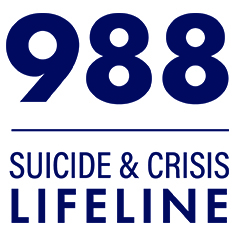This book expands upon work of the Institute of Medicine commissioned by the Centers for Disease Control and Prevention (CDC) and the Health Resources and Services Administration (HRSA) to convene a committee to assess the opportunity for the agencies to improve population health through integration of primary care and public health. The result of the committee’s work produced the Practical Playbook: Public Health and Primary Care Together, with tools and technologies for collaboration. Since then, multisector collaborations that improve the health of communities have continued to expand. This book builds on that experience to provide a set of tools, methods and examples that support multisector partnerships to improve population health.
Resource Types: Book
Best practices in American Indian & Alaska Native public health
This report was written to illuminate the situation, response and impact of Tribal Epidemiology Centers (TECs) to improve American Indian/Alaska Native (AI/AN) public health surveillance data availability and data quality. The TECs were established in 1996 to address unique circumstances affecting AI/AN health data deficiencies and gaps as a foundation for improving health policy and expenditure decisions on the local, state and national levels.
Returning home from Iraq and Afghanistan: Readjustment needs of veterans, service members, and their families
The wars in Iraq and Afghanistan have been the longest sustained U.S. military operations since the Vietnam era, sending more than 2.2 million troops into battle, and resulting in more than 6,600 deaths and 48,000 injuries. While many service members return home relatively unscathed and report rewarding experiences, others return with varied complex health conditions and find that readjusting to life at home, reconnecting with family, finding work, or returning to school is an ongoing struggle. The urgency to alleviate these health, economic, and social issues is heightened by the number of people affected, the rapid drawdown of military personnel from Iraq and Afghanistan, and the long-term effects for service members, veterans, their families, and the nation.
The IOM was asked to study veterans’ physical and mental health, as well as other readjustment needs. Following its phase one report, this report presents the IOM’s comprehensive assessment of the physical, psychological, social, and economic effects of deployment on service members, veterans, their families, and their communities.
CNS clinical trials: Suicidality and data collection: Workshop summary
The Food and Drug Administration (FDA) now requires that all clinical trials for drugs that affect the central nervous system, including psychiatric drugs, are assessed for whether that drug might cause suicidal ideation or behavior. The Institute of Medicine’s (IOM) Forum on Neuroscience and Nervous System Disorders hosted a meeting on June 26, 2009, to discuss the FDA’s new policy and how to analyze best whether suicidal thoughts predict actual suicidal behavior in the near future.
Returning home from Iraq and Afghanistan: Preliminary assessment of readjustment needs of veterans, service members, and their families.
Nearly 1.9 million U.S. troops have been deployed to Afghanistan and Iraq since October 2001. Many service members and veterans face serious challenges in readjusting to normal life after returning home. This initial book presents findings on the most critical challenges, and lays out the blueprint for the second phase of the study to determine how best to meet the needs of returning troops and their families.
Provision of mental health counseling services under TRICARE
In this book, the IOM makes recommendations for permitting independent practice for mental health counselors treating patients within TRICARE–the DOD’s health care benefits program. This would change current policy, which requires all counselors to practice under a physician’s supervision without regard to their education, training, licensure or experience.
Gulf War and health: Volume 8: Update of health effects of serving in the Gulf War
In this report, the IOM determines that Gulf War service causes post-traumatic stress disorder (PTSD) and that service is associated with multisymptom illness; gastrointestinal disorders such as irritable bowel syndrome; alcohol and other substance abuse; and anxiety disorders and other psychiatric disorders. To ensure that our veterans receive the best possible care, now and in the future, the government should continue to monitor their health and conduct research to identify the best treatments to assist Gulf War veterans still suffering from persistent, unexplained illnesses.
Preventing mental, emotional, and behavioral disorders among young people: Progress and possibilities

An update of the IOM book, Reducing Risks for Mental Disorders, this work focuses on the research base and program experience with young populations.
Invisible wounds of war: Psychological and cognitive injuries, their consequences, and services to assist recovery
The study discussed in this monograph focuses on post-traumatic stress disorder, major depression, and traumatic brain injury among veterans. All three conditions affect mood, thoughts, and behavior; yet these wounds often go unrecognized and unacknowledged.
Preventing suicide: How to start a survivors’ group
This manual discusses needs of suicide survivors, ways in which self-help groups can help as well as providing guidance on how to establish a survivors’ support group
